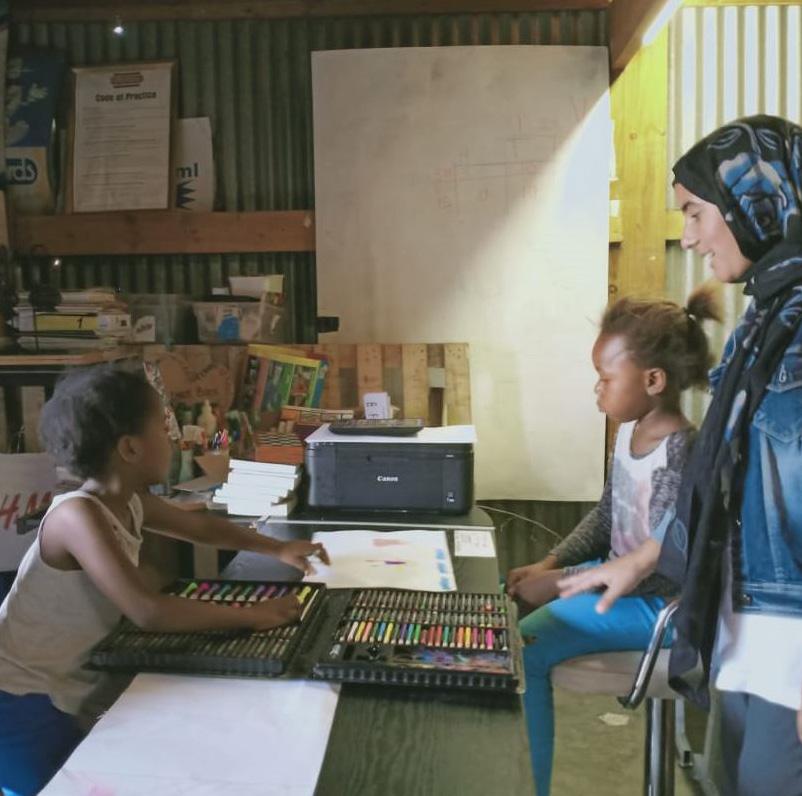
3 minute read
An Overview
Globally, youth are commonly viewed as passive, apathetic and disinterested in the affairs of their own communities. Moreover, youth involvement has historically been seen as disruptive and spontaneous among other things. Despite this persistently negative characterization, there are driven and committed youth across the world who through their actions continue to influence positive change in their communities. In October 2014, Malala Yousafzai from Pakistan was named a Nobel Peace Prize winner at age 17, thus becoming the youngest person to receive this prize. The award was in recognition of Malala’s activism and determination for Pakistani girls to access free quality education. In 2007, when Malala was ten years old, the Taliban had become the dominant socio-political force throughout much of north-western Pakistan. Girls were banned from attending school, and cultural activities like dancing and watching television were prohibited. In South Africa, the youth led #FeesMustFall movement that gripped university campuses across South Africa in 2015, led to policy shifts on the part of government on higher education financing. This moment in South Africa’s history succinctly depicts the important contribution young people have made towards addressing some of the country’s developmental challenges.
Despite the persistently negative dominant narrative about youth globally, there are many other examples of youth contributing positively into the public realm across the world as depicted above. The stories of Malala Yousafzai and the #FeesMustFall movement both represent examples of the important role young people are playing in addressing pressing socio-economic issues affecting society today. With this in mind, there is therefore a dire need to nurture the potential and agency of youth to continue influencing positive change in communities across the world. This is especially true of youth from the developing world which is generally plagued by interminable challenges of poverty, inequality and disease among others. Given their social status, youth in developing countries are vulnerable to these and other issues. It is important for youth to be continuously supported and intently engaged in order for this vulnerability to be decreased and more importantly to ensure that they are empowered to contribute positively towards finding lasting solutions to these and other challenges facing their communities.
Advertisement
In 2017, at the opening of the Global South-South Development Expo in Antalya Turkey, Jorge Chediek pointed out the increasingly important role global-south development interventions play in responding to challenges affecting the world today. “Solutions to
today’s critical development challenges exist in the Global South, and every country – large or small, emerging economy or
least developed – has something to offer to the world,” he maintained. Pravah, an Indian-based development intervention has over the last 29 years committed itself to creating opportunities for the self-development of youth in order for them to influence positive change in their communities. Similarly, in South Africa, a network of over 4000 youth leaders called ACTIVATE! Change Drivers has committed itself to be the engine of economic, social and political change not only to improve their lives, but the lives of all around them.
Pravah and ACTIVATE! share a common vision of helping young people to lead the pursuit of building a future worthy of their longing. In light of Chediek’s insights on the need to harness the potential that developing nations have to offer it is vital to reflect on the role that both Pravah and ACTIVATE! play in responding to development challenges facing society today. At the core of the developmental approach of the two organisations is the philosophy of creating platforms for young people to meet, connect and be inspired to play a contributing role towards the transformation of society. Thus giving birth to a collaboration on an exchange programme between Pravah and ACTIVATE! as a tool for social change in the developing of the capacities of young people. The exchange programme also gave rise to the opportunity of crafting new and sustainable channels for future cross-cultural youth development partnerships. Additionally, the exchange programme offered the two organisation the opportunity to reflect upon the common history shared between South Africa and India and its relevance in providing a more broadened understanding of youth development challenges in the global south. Aligned to this is the focus on the collective responsibility of various sectors of society in ensuring that youth are supported to meaningfully and actively respond to the interminable socio-economic challenges that they face today. In a nutshell, the exchange is about two organisations from different continents working together to create a crosscultural learning experience and explore it’s long-lasting, positive impact on the organisations, the young volunteers involved, and their communities. Pravah participants site visit to Philippi Youth hub - Cape Town









